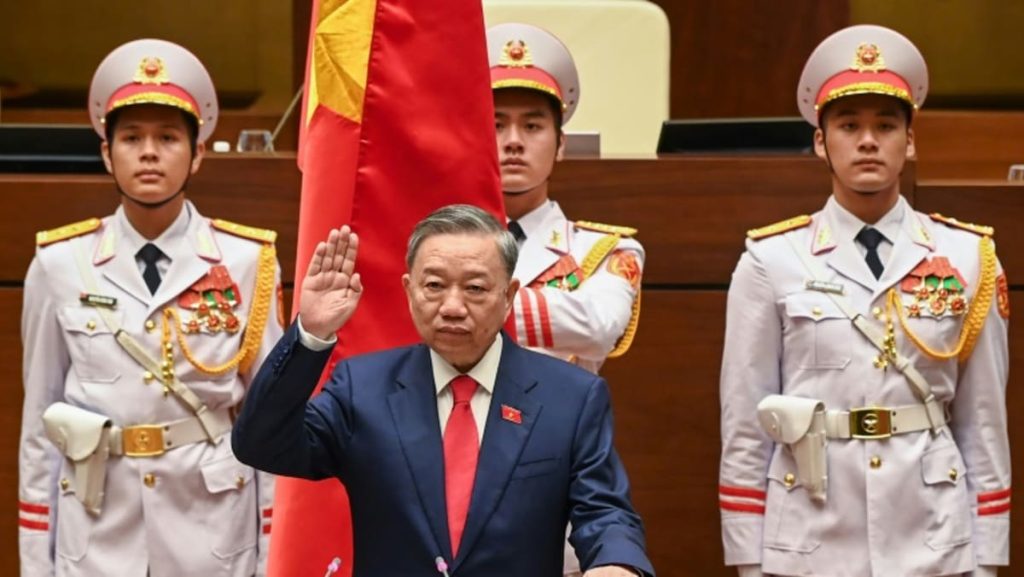Vietnam’s parliament elected police minister To Lam as the state president in a move seen as a precursor to potentially running for the position of chief of the ruling Communist Party. Lam’s election followed the appointment of a new chairman and ends a period of political turbulence that saw the exit of three of the country’s top leaders. Lawmakers voted unanimously on Lam’s election after a secret ballot, as he was the only candidate for the job. As head of the public security ministry, Lam has been instrumental in an anti-graft campaign that has been criticized for potentially being used to sideline opponents during political infighting, impacting foreign investment and public administration.
Lam has pledged to continue the fight against corruption after his election as state president, a largely ceremonial role but one of the country’s top four positions. Political infighting is expected to calm down after Lam’s election, but the larger battle for the party chief position remains as the current chief’s term ends in 2026. Lam’s election to state president indicates ambitions beyond retirement, with the potential to use the position as a stepping stone to becoming general secretary. The representative for Germany’s Konrad Adenauer Foundation in Vietnam sees Lam’s position as a potential launch pad for the party chief job, while expecting continued infighting until that key position is filled.
In a surprising move, the parliament voted to dismiss Lam from his previous post as police minister, not originally on the agenda. Prime Minister Pham Minh Chinh has assigned a deputy minister of public security to temporarily head the ministry. This unexpected change further underscores the political shifts and power struggles within the ruling Communist Party. The dismissal of Lam further highlights the complexities and uncertainties within Vietnam’s political system as it navigates through potential changes in leadership and processes.
The anti-graft campaign led by Lam has been a key focus for the government but has also raised concerns about political motivations and potential abuses of power. Critics argue that the campaign may be targeting opponents and causing damage to foreign investment and public administration. Continued political turbulence has led to a decrease in foreign investment and the paralyzed public administration, impacting the country’s economic stability and growth. The dismissal of Lam and the subsequent shifts in leadership further highlight the challenges faced by Vietnam in maintaining political stability and managing transitions of power.
Lam’s election as state president signals a potential shift in leadership dynamics within Vietnam’s political system, with speculation about his ambitions for higher positions. The upcoming battle for the party chief position will be crucial in determining the future direction of the country’s leadership and political landscape. While political infighting is expected to continue until the party chief position is filled, the appointment of Lam as state president sets the stage for potential changes and power shifts within the ruling Communist Party. The coming years will be pivotal in understanding the implications of these political developments on Vietnam’s governance and stability.















